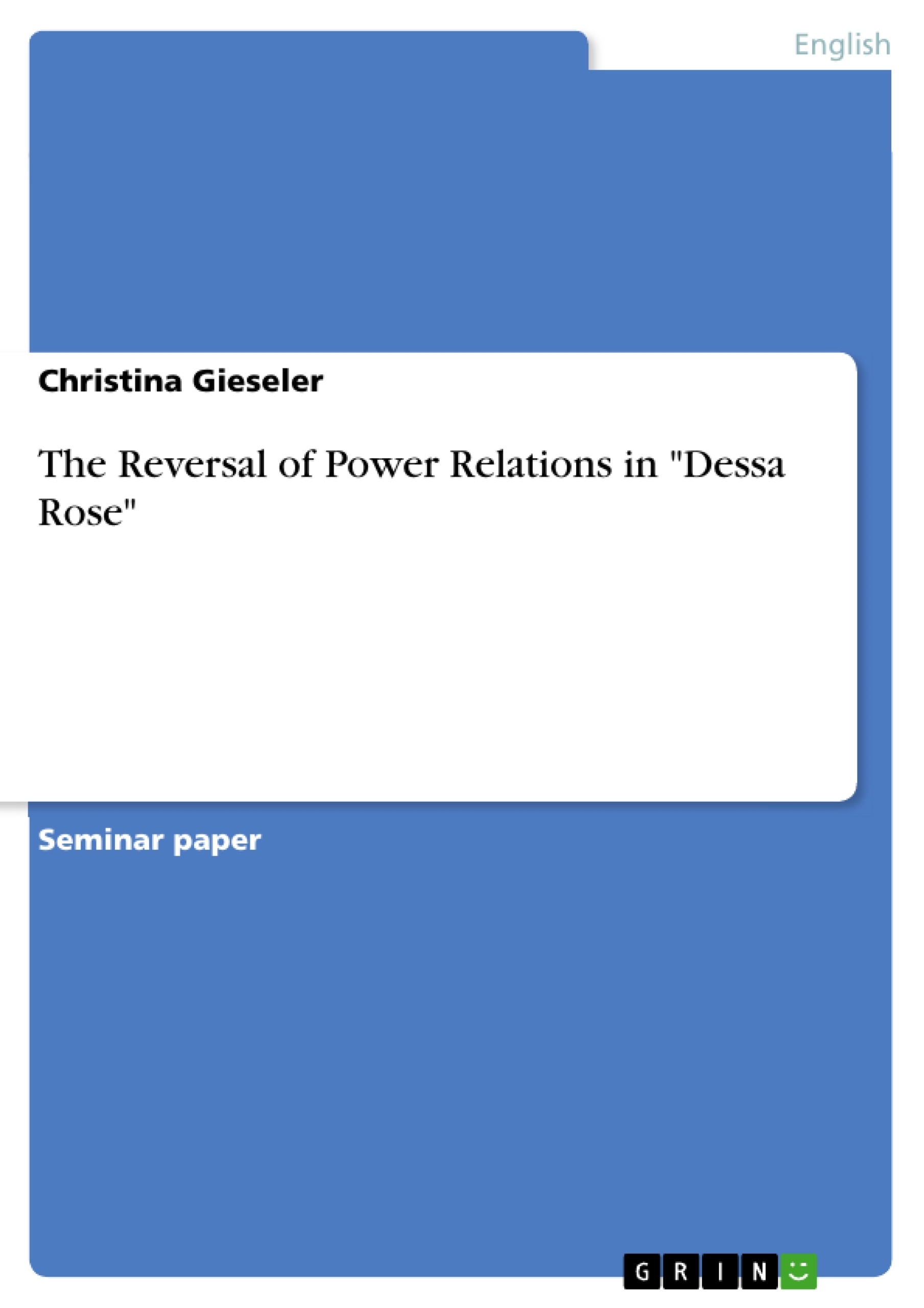1 Introduction
In literary criticism Sherley Anne Williams’ novel Dessa Rose is often argued to be “a story of a woman’s triumph in a (white) man’s world” (Beaulieu 40) and the “story of a woman’s passage from slavery to freedom (McDowell 147). The novel, as a postmodern neo-slave narrative, stands as a counter-text to master texts and the slave narratives of the 18th and 19th century and presents “a series of reversals, contradicting conventional expectations with regard to both race and gender” (Beaulieu 31). As McDowell notes, the novel stages the oppositions of “slavery and freedom, orality and literacy, fact and fiction [...] in an untidy network of social and material specifities” (147).
This paper is concerned with the power relations expressed through the “relationship between orality and textuality, between the spoken word that enlivens and the written one that captivates” and their reversal (Rushdy 2004, 99). As a novel, dealing with “oppressive literacy” and “emancipatory orality” Dessa Rose is a novel that directs our attention to the disparity in access to power between those who write master texts and those who produce slave narratives [...]” (Rushdy 1993, 366; 1999, 136).
In this paper this interesting discrepant relationship is going to be analysed on three different levels. On the level of the story of Dessa Rose it is going to be analysed how the southern white author Adam Nehemiah attempts to assume mastery over the slave woman Dessa and how Dessa refuses to be subject to his efforts of subjugation. It will be shown how Nehemiah “reads” Dessa according to his own terms and appropriates her (hi)story in his writing. Furthermore, it will be revealed how Dessa seizes the power of her own voice, how she resists being captivated in Nehemiah’s book and how she eventually makes use of the written word herself. On the level of narrative transmission, it will be described how this struggle between literacy and orality is mirrored and at the same time deconstructed by the way the narrative is mediated. Finally, it will be discussed how Williams’ novel reverses the conventions of the traditional slave narrative and thereby hints at the power disparity that the authors of traditional slave narratives faced in their effort to tell their own stories. As such, this paper is concerned with “the power relations in literary institutions” and “the significance of individual writers’ acts of appropriation” (Rushdy 1999, 135).
Inhaltsverzeichnis (Table of Contents)
- Introduction
- Defying the Power of Literacy
- Adam Nehemiah's Master Text in Dessa Rose
- Dessa's Seizing of the Power of the Word
- Resisting the Prescriptive Pen
- Exercising the Power of Orality
- The Power of Listening and Speaking
- The Power of Humming and Singing
- Dessa's Final Victory by the Use of Orality and Literacy
- Reversing Power Relations through Narrative Form
- The Deconstruction of Nehemiah's Master Text through Narrative Transmission
- The Reversal of Slave Narrative Conventions
- Conclusion
Zielsetzung und Themenschwerpunkte (Objectives and Key Themes)
This paper analyzes the power dynamics between orality and textuality in Sherley Anne Williams' novel Dessa Rose, a postmodern neo-slave narrative. It examines how the white author Adam Nehemiah attempts to control and subjugate the black slave woman Dessa, who resists this subjugation by seizing the power of her own voice.
- The relationship between orality and literacy in the context of slavery
- The struggle for agency and self-representation
- The deconstruction of master narratives and the subversion of power dynamics
- The role of the slave narrative in challenging societal structures
- The intersection of race, gender, and class in the antebellum South
Zusammenfassung der Kapitel (Chapter Summaries)
- Introduction: This chapter introduces the main arguments of the paper, focusing on the novel as a counter-text to traditional slave narratives and how it challenges conventional power relations through the interplay of orality and literacy.
- Defying the Power of Literacy: This chapter analyzes the character of Adam Nehemiah, who attempts to write a master text about the prevention of slave revolts, using Dessa as a source of information. It explores Nehemiah's attempts to control and subjugate Dessa through his writing, highlighting his misinterpretations and misrepresentation of her life story.
- Exercising the Power of Orality: This section examines how Dessa resists Nehemiah's attempts to control her narrative by embracing the power of orality, including listening, speaking, humming, and singing.
- Reversing Power Relations through Narrative Form: This section analyzes how the novel's narrative structure and transmission deconstruct Nehemiah's master text and subvert traditional slave narrative conventions. It explores how Williams' novel challenges the power dynamics faced by authors of traditional slave narratives.
Schlüsselwörter (Keywords)
Key concepts and terms explored in this paper include: postmodern neo-slave narratives, orality and literacy, power relations, master texts, slave narratives, agency, self-representation, race, gender, class, antebellum South, and the struggle for voice.
- Arbeit zitieren
- Christina Gieseler (Autor:in), 2012, The Reversal of Power Relations in "Dessa Rose", München, GRIN Verlag, https://www.grin.com/document/196427



